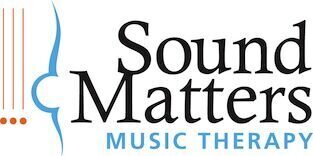Month: March 2012
Not a newfound podcast, but a good one
I am always looking for great reads and great podcasts, and there is one podcast that has not let me down yet. The Coffee Klatch had a fantastic interview of Dr. Duncan McKinlay, a psychologist who ... Read MoreConsiderations of past clientele
About one month ago was my last day at the care center where I worked for one year. Not surprisingly, I miss the residents and their family members with whom I’d grown to know in that time. Thou... Read MoreGeorgia, Georgia
I’ve just read that the Georgia Senate has passed a state licensure bill for music therapy. More and more states, including Minnesota, are pushing for state licensure and a few already have it. ... Read MoreLaryngitis
I think it’s funny that when I lose my voice, I apparently lose all ability to do anything, including provide music therapy services and blog. I’ve been really ill this week, but finally t... Read More- 2 of 2
- « Previous
- 1
- 2
